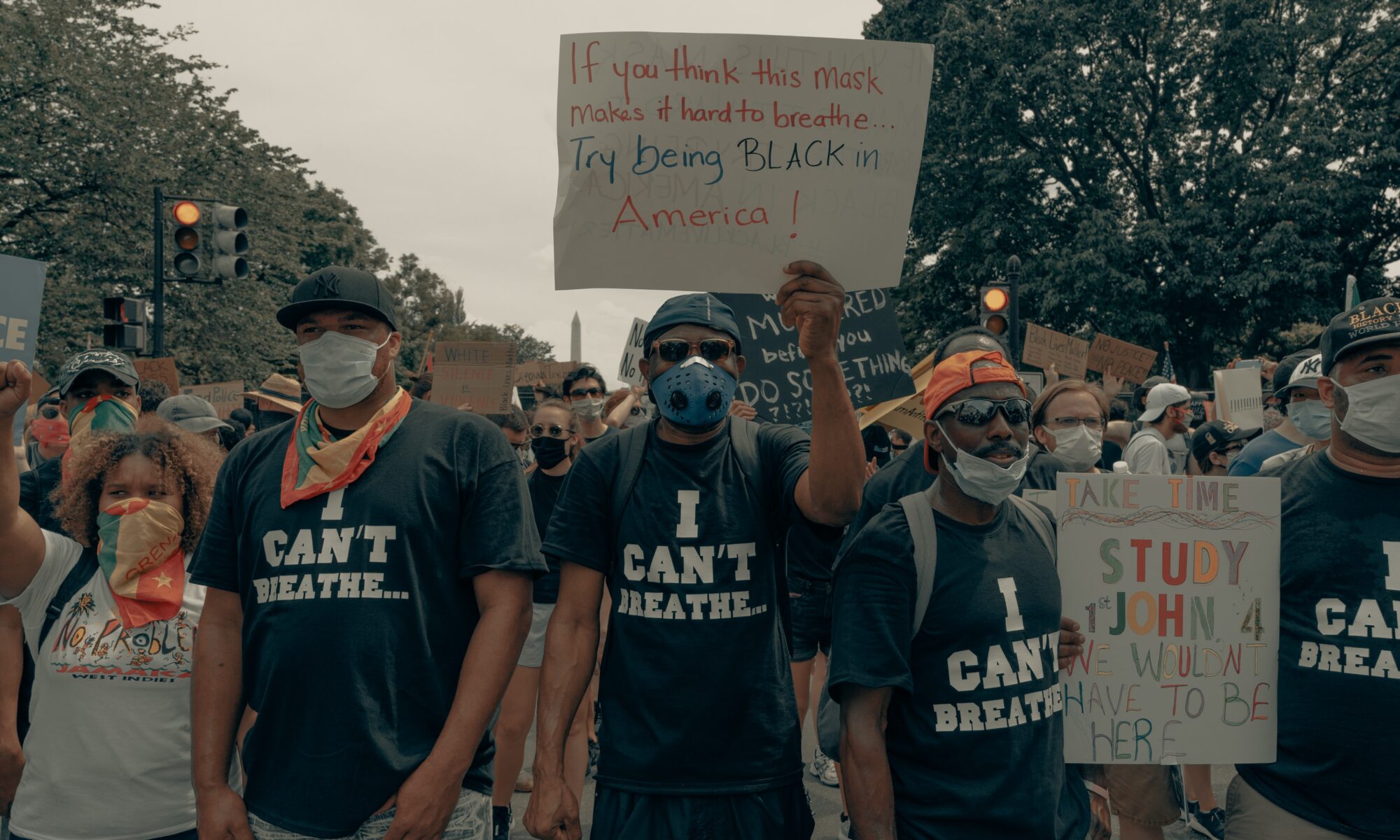A lot of folks have been writing off 2020 for months. And like…fair. It certainly wasn’t what I had in mind when we I was posting a cute “roaring ’20s” photos on January 1st.
But just like nothing magically changed when the clock hit midnight that day, no switch will flip on January 1st of next year, either. So don’t be too quick to wish 2020 away. (Although I hope 2021 comes with a vaccine and a new president.)
In a recent conversation with my pastor, she expressed that “2020 [is] the year that none of us wanted but maybe all of us needed.” 2020 has so much to teach. It is doing so at the unique intersection of two of the biggest events in my life: a pandemic and a mass-reckoning with racial injustice.
If one of these things happened on its own, it would still be a year for the history books. But neither event would have the same impact alone that they have together. It is important that they are happening at the same time.
In the Media
In a video posted on her Instagram, Senator and Vice Presidential Candidate Kamala Harris says “there’s so much about this pandemic that has accelerated what was a problem before.” Like racial inequities in employment and healthcare, for starters. COVID has brought these to the forefront along with the police brutality in the news. And it has given many of us time at home to watch and listen and reflect.
On an episode of the Michelle Obama podcast, one of Michelle’s mentees, a Black woman and former White House employee, shared the following:
I’m trying to process why when I initially saw these videos of the Sandra Blands and the Philando Castiles, why I didn’t feel this same anger and hurt…when I first saw them that I’m feeling now, and I think a lot of that has to do with the pandemic, and the mere fact that I am forced to sit in it and sit with it, whereas before, it was business as usual; you saw it, and you’re like ‘damn, another one,’ and then you kept going. But right now, since everything is at a standstill, I’m processing these things a little bit more in-depth than I ever have before.
Chynna Clayton
As a white woman, much about my processing looks different than Chynna’s. But I, too, would not have my current perspectives without this year’s overlap in events.
A Personal Realization
Earlier in the summer, I was doing some classic white people shit…I was playing a round of golf. My first of the year (and maybe my third ever…I’m new at this).
This was back when the world was first starting to open up again, after we’d all been staying home as much as possible. For several weeks, even going to the grocery store was exhausting, the possibility of COVID lurking around any turn. And at home, when we weren’t actively stressed by the unknown, we were constantly thinking about it and talking about how quickly our lives had changed.
So I finally got outside, saw a coworker in person, and focused on something remedial…hitting a ball toward a hole (slowly but surely). Somewhere around the fifth hole, I realized I hadn’t thought about the pandemic since I took off my mask an hour ago. To my surprise, I had actually relaxed and felt “normal” for a while.
As I sighed in relief, a second realization followed. What I had just experienced was new to me. ‘But I bet people of color experience this all the time.’
I saw COVID everywhere for a few weeks. Black people experienced this on top of seeing oppression everywhere for a lifetime. I fear my family getting sick. A dreamer fears this, and that their family gets deported. I was exhausted at talking about working from home. People of color are exhausted by the ways their work lives have changed, and by explaining microaggressions to their coworkers. I found refuge in a round of golf. Where do they find refuge?
On the same episode of her podcast referenced earlier, Michelle says, “Sometimes we turn off to it, because that’s our break. If I gotta wake up everyday and face the world as it is right now…ugh…sometimes you gotta turn it off just to get through it.”
Michelle also says, “You can’t understand what you don’t know. And when you’re white in this country, you have the luxury of only knowing what you know.”
Before the pandemic, I had the luxury of not knowing the feeling of navigating a world that is not built for my comfort. Now, I and other white people have a point of reference that helps us to understand the experience of people of color a little more.
Call to Reflection
Take a moment to think about how much 2020 has taught you, before it’s even over. Maybe you, too, have had a personal realization or two. Maybe you’ve taken the world up on its offer to educate you on race with documentaries and podcasts and Instagram slide shows. Maybe you’ve decided to learn more about politics and play an active role the upcoming election.
Maybe you have learned how to clear space in your life and say goodbye to “the old” that no longer serves you. Maybe you have learned how to care for yourself in a time that feels really difficult. Maybe you’ve lost a job, or even lost someone to COVID, and you’ve learned about your strength and perseverance.
Whatever you have learned, keep learning, and use what you learn.
To borrow another idea from my pastor: You were made “for just such a time as this” (Esther 4:14). You were made for a year with a pandemic and race movements.
I understand the desire to skip ahead to a time where things are “back to normal.” But things will never go back to how they were in February or in 2019, because 2020 is changing each one of us. I hope it changes us for the better.




